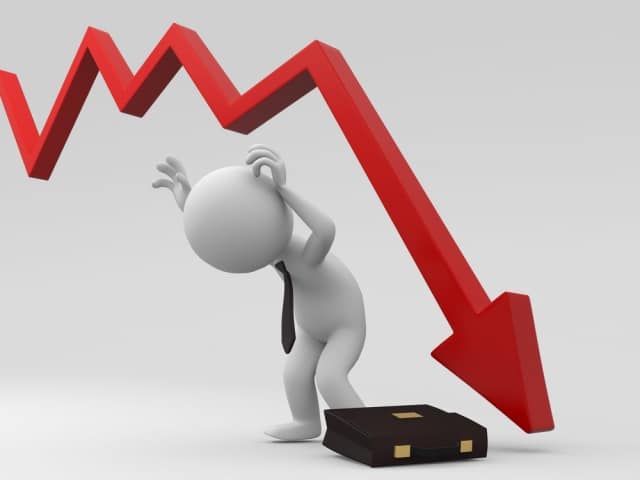A coalition of investors called out five oil and gas companies for failing to measure or reduce risks associated with fracking on Tuesday, singling out companies both large and small for how they’ve handled the myriad risks associated with shale oil and gas extraction.
Shareholders in five companies — ExxonMobil, Chevron, EOG Resources, Occidental Petroleum and Pioneer Resources — filed resolutions objecting to the ways that the companies describe the risks of hydraulic fracturing and their failures to reduce the environmental and social impacts of fracking.
“The damaging impacts of hydraulic fracturing on air, water, and local communities have made the public understandably nervous and resistant to permitting this controversial industrial activity,” said Leslie Samuelrich, President of Green Century Capital Management, which together with the New York State Comptroller Thomas DiNapoli, filed the resolution at EOG Resources.
“Companies that fail to demonstrate a public commitment to identifying and mitigating their impacts will fail to earn the public trust,” she added, “and may put shareholder value at risk.”
Four of the five companies – ExxonMobil, Chevron, EOG Resources, and Occidental Petroleum – received failing scores in a recent report that examined how companies disclosed the impact of fossil fuel extraction and graded their efforts to mitigate risks. Disclosing the Facts: Transparency and Risk in Hydraulic Fracturing Operations focused on 24 companies that use fracking, assessing the ways each handled toxic chemicals, water and waste, air emissions, community impacts, and governance. EOG Resources received a score of 6 out of 32, Chevron a score of 3, ExxonMobil and Occidental Petroleum each got a score of just 2.
That has some investors, including those overseeing New York City’s pension fund, worried.
“Rapid advances in hydraulic fracturing have propelled the technology ahead of the science,” said New York City Comptroller Scott M. Stringer, who filed the resolution at ExxonMobil together with As You Sow, “placing communities and the companies themselves at risk”
The coalition includes two of the world’s largest institutional investors. As comptroller, Mr. Stringer is custodian and investment advisor for the pensions of New York’s teachers, police and other employees, which wield a total of $144 billion in assets.
The coalition also included New York State’s Comptroller Thomas P. DiNapoli, whose office is the trustee for $160.7 billion in retirement funds, along with investment advisors Green Century Capital Management, which also manages mutual funds; the non-profit As You Sow; The Investor Environmental Health NetworkThe Sisters of St. Francis of Philadelphia.
Since 2009, institutional investors have called for oil and gas companies to ratchet up the ways they disclosure their risk management practices to shareholders, and by proxy, the public. For the fifth consecutive year, ExxonMobil received a shareholder proposal, filed by As You Sow and the New York City pension funds.
Although the resolutions have yet to reach a full majority at shareholder meetings, they’ve received broad support in past years, sending an unusually strong message to company management. Last year, 41.7% of shareholders voted in favor of the Pioneer Resources resolution, and resolutions at Chevron and Exxon’s received roughly 30 percent support.
“Scoring a ‘yes’ vote over 10% is a noteworthy achievement,” said journalist Leon Kaye in a 2011 column on that year’s resolutions, “breaking 20% is especially impressive.”
The list of companies the investors focused on is noteworthy in part because it includes oil companies both large and small. ExxonMobil, the groups noted, scored particularly low on reported management of toxic chemicals, water and waste, and air emissions.
Fracking advocates have at times argued that the real risks of fracking come from the smaller wildcat drillers, which they say have weaker safety cultures and less on the line than the largest oil and gas companies.
Indeed, an investigative report by the Wall Street Journal last year found that the largest oil and gas companies were less likely to be cited for breaking environmental laws in Pennsylvania than their mid-size and small private competitors. But that report also noted the difficulties of drawing conclusions from the ways that environmental laws are enforced, explaining, for example, that sometimes one citation is issued for a variety of violations.
The findings of the “Disclosing the Facts” report suggest that majors can sometimes have track records as bad or worse than smaller operators.
The shareholder resolutions aim to extract more information from oil and gas companies about the risks of fracking. For example, natural gas itself is largely made of the powerful greenhouse gas, methane, and methane leaks, scientists say, could make the climate change impact of the current natural gas boom worse than burning coal.
Broader concerns about the risks posed by all fossil fuels have also fueled a growing fossil fuel divestment movement.
Across the U.S., state pensions, universities, religious groups and other institutional investors have been asked to stop to investing in major coal, oil and gas companies out of concern over climate change. Dozens have agreed.
On January 30th, 17 major philanthropies announced they had signed a divestment pledge. The philanthropies signed a pledge to“[c]ommit to a timetable and process, commensurate with the pace of climate change, for eliminating all fossil fuels from your investment portfolios,” except to retain stakes for shareholder activism, and to invest instead in renewable and other “clean” technologies.
The threat posed by climate change has ecologists and economists alarmed. On Tuesday, a paper published in the presitigious Proceedings of the National Academy of Sciences by researchers at the University of Southamption concluded that coastal regions alone could face damages of up to $1,000,000,000,000,000,000 (in other words, one million dollars times a billion) per year from storm surges by the end of this century, if present patterns continue.
These sorts of numbers have started to turn economists’ heads.
“In corporate boardrooms and the offices of CEOs, climate change is a real and present danger,” wrote the World Bank in a Jan. 23 communiqué. “Rising sea levels and more intense storms put their infrastructure at risk, and the costs will only get worse.”
Awareness of climate change is clearly growing. The question is whether companies will begin to address the true cause: our dependence on fossil fuels like natural gas, oil and coal and our failure to move fast enough to adopt renewables. It’s just that simple.
The recent shareholder actions show that more business leaders have begun to confront this reality. But will policy makers follow?
Photo Credit: Arrow Down, via Shutterstock
Subscribe to our newsletter
Stay up to date with DeSmog news and alerts






